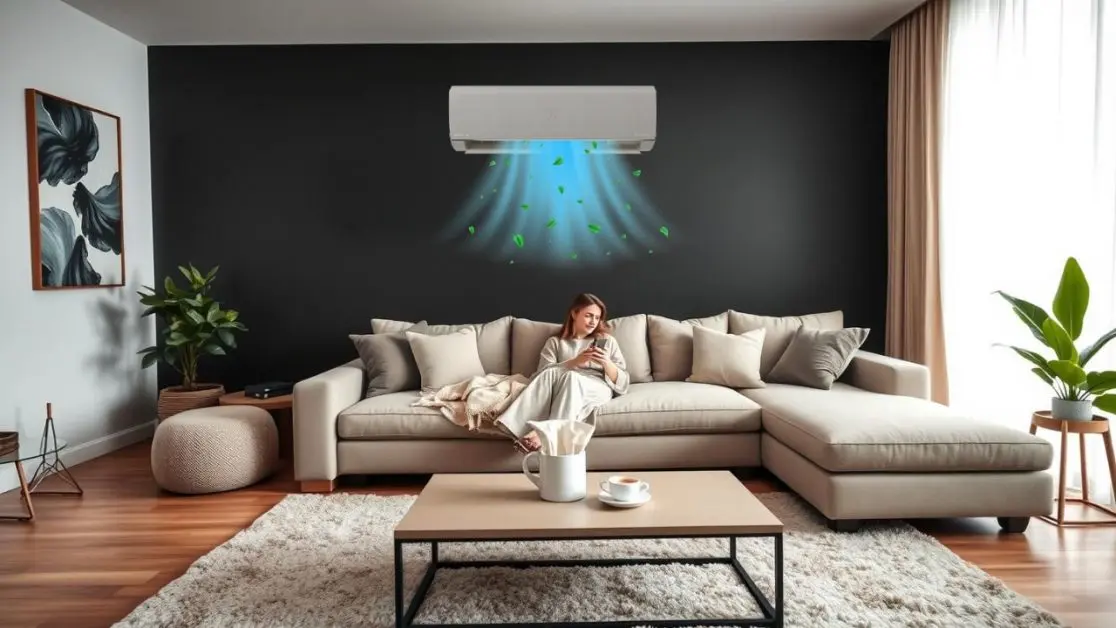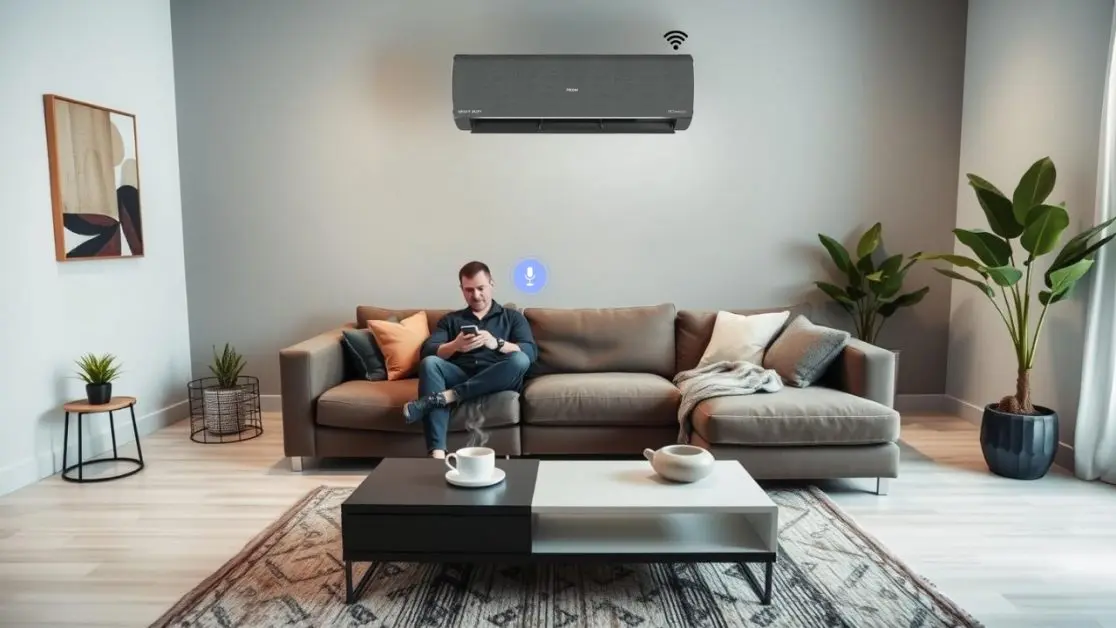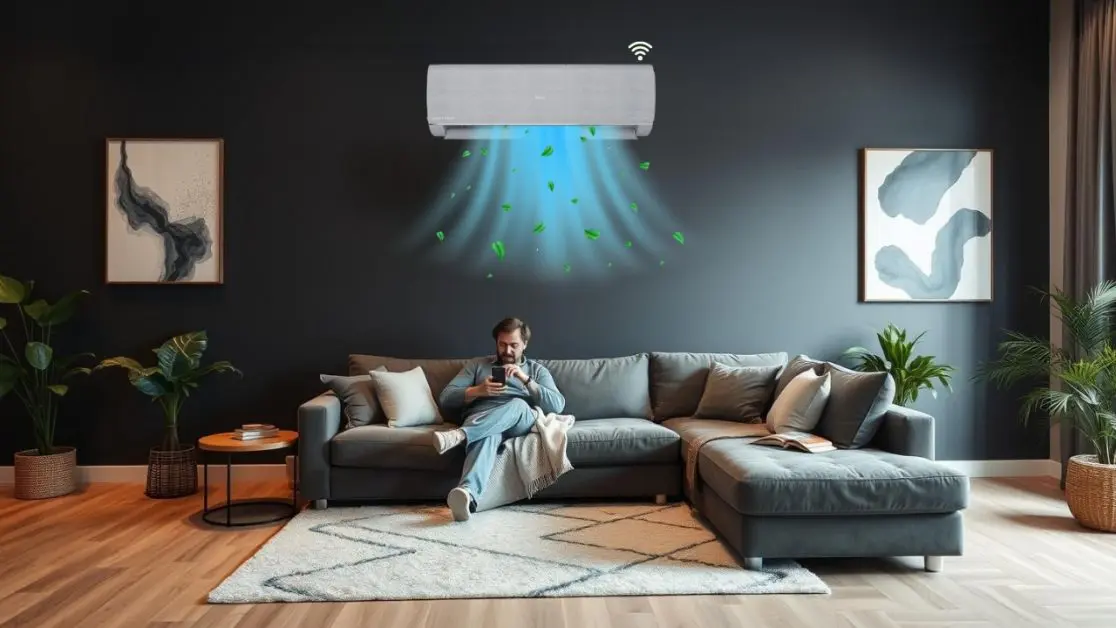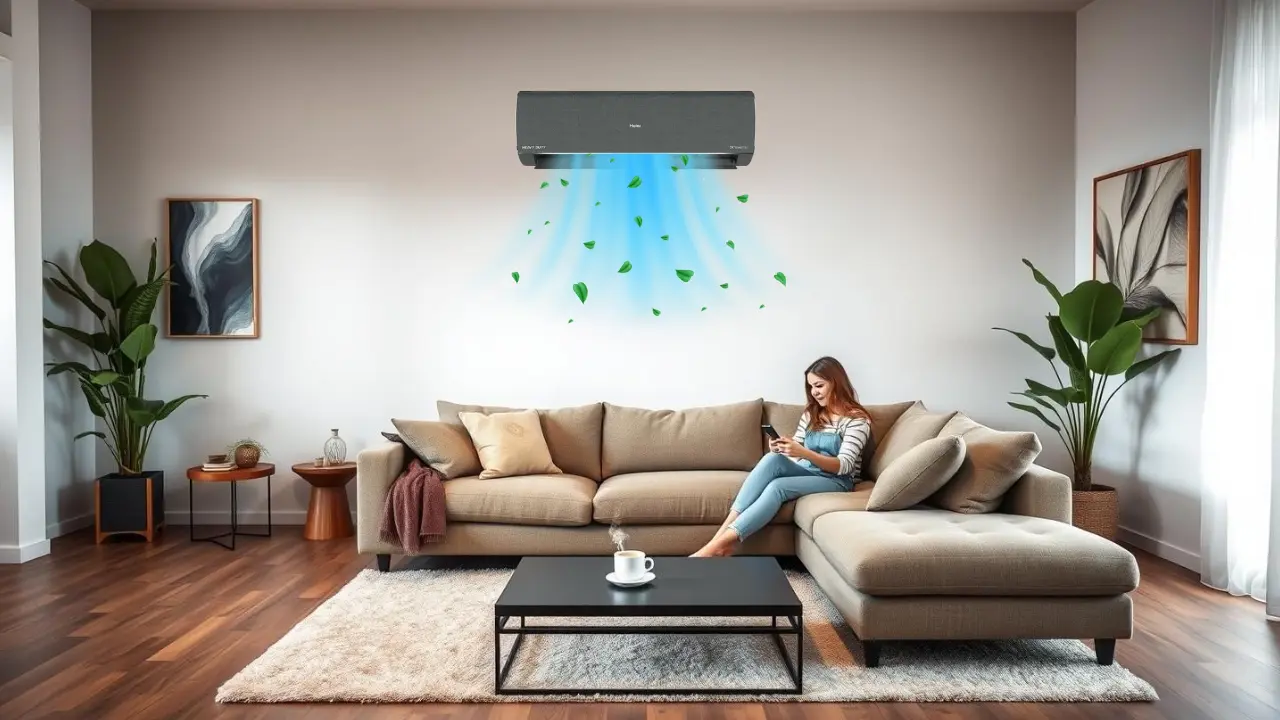We’ve been asking AI to write code, drive cars, even compose symphonies.
But what happens when it starts deciding your bedroom’s temperature?
That’s not science fiction anymore. It’s the new middle-class Indian summer.
And if Geoffrey Hinton, the “Godfather of AI”, walked into your 2BHK in Noida or Nashik and saw your air conditioner adjusting itself without being told, chances are, he’d pause. Smile.
And then say something that doesn’t sound like tech jargon but cuts straight to the human dilemma.
Because this isn’t just about machines learning patterns. It’s about comfort, control, and what happens when we start outsourcing decisions that were once personal.
When Intelligence Moves Indoors

Let’s start with something mundane.
You walk into your room after a sweaty commute. You’re half expecting that blast of hot air from the window, but instead, you feel it, the cool breeze, already flowing. You didn’t press a button. The AC just knew.
Why?
Because today’s smart air conditioners are no longer machines that wait. They’re systems that anticipate. Thanks to AI-driven climate control, they track your habits, learn your rhythms, and tune themselves to match your preferences before you even realise what you need.
It sounds like magic. It’s actually machine learning.
The same underlying principle Hinton built his career on.
Geoffrey Hinton Warned Us, But Not About This
Hinton’s biggest fear isn’t that machines will make your life easier.
It’s that they’ll start replacing thinking, and worse, purpose, without us noticing.
But here’s the paradox.
In the case of ACs that think for themselves, we’re not surrendering critical thought. We’re just trading small, repetitive discomforts for a better living experience.
We’re not saying, “Here, AI, take over my job.”
We’re saying, “Handle the temperature, I’ve got better things to worry about.”
There’s a big difference.
From Predictive to Personalised: The Evolution of Cooling

Old ACs were reactive. You turned them on. You turned them off.
Today’s smart ACs, like the ones in the AI Gravity Series, observe, learn, adjust.
They track your preferred temperature by time of day, respond to changes in humidity, and even account for outdoor heat levels. And they don’t just run efficiently. They think efficiently.
What does this look like in practice?
- Coming home at 8 PM every day? The AI Climate Assistant has already cooled the room by 7:45.
- Sleeping under a blanket but still feeling chilly at 3 AM? The AC senses it and eases the cooling silently.
- Weekend nap on the couch? It remembers your idle posture and cools the right zones.
It’s not just data. It’s attention. And that’s what Hinton keeps reminding us about AI, it’s not just about power. It’s about focus.
What Hinton Would Actually Ask
If Geoffrey Hinton sat on your sofa, he wouldn’t ask, “How many sensors does this have?”
He’d ask:
- “Who is this AC really serving?”
- “Does it make life better for you, or just seem smarter on paper?”
- “Is it adapting to you, or making you adapt to it?”
And here’s the honest answer, at least with AI Gravity Series AC:
It adapts to you. Not the other way around.
With features like AI ECO mode, it learns how much cooling is needed and adjusts power consumption accordingly. It doesn’t overperform. It performs perfectly. Like a quiet assistant who knows when to refill your glass without interrupting the conversation.
The Invisible Shift: From Input to Insight

This is the real transformation.
Not just “voice control.” Not just “Wi-Fi connected.”
But insightful cooling.
This shift from “What do I want right now?” to “What does my body usually need right now?” is subtle but powerful.
And here’s where Hinton would probably pause.
Because insight, when done right, feels almost human.
On a hot June evening in Pune, it’s the difference between a tired button push and a seamless, sweat-free entrance into a room that feels like it’s been waiting for you.
It’s not about control panels anymore. It’s about intuitive living.
When Tech Knows You Better Than Your Spouse?
Let’s be honest.
Most people in Indian households argue about the remote. The AC temperature. The fan speed.
Now imagine a machine that learns that your dad prefers 25°C after lunch and your toddler needs it warmer after a bath. And it adjusts automatically.
There’s no debate. Just peace.
And this, right here, is where the AI conversation turns practical.
AI doesn’t have to replace your relationships. But it can smooth out the friction.
Because sometimes, the right temperature saves more arguments than hours of counselling.
System Thinking: Why This Isn’t Just a “Cool” Feature
Now zoom out.
What does this mean for energy?
For urban electricity grids?
For middle-income households watching every unit?
Here’s the math: A smart AC that runs on Hexa Inverter Technology and AI ECO mode can save up to 65% energy.
Over a season, that’s not small talk. That’s hundreds of rupees. That’s relief not just from the heat, but from the power bill.
Now imagine if 1 lakh homes across Delhi and Mumbai switched to AI-enabled ACs.
- Less strain on the grid during peak hours.
- More uniform load distribution.
- Better national energy efficiency.
Suddenly, your AC isn’t just serving you. It’s serving a broader system.
Hinton would call this distributed intelligence. A network of machines, each optimizing locally, but contributing globally.
The Bigger Picture: When Comfort Becomes Conscious
Hinton always said: “We don’t know exactly how the brain works, but we can mimic parts of it.”
In a way, that’s what smart ACs are now doing.
They don’t understand your emotions. But they recognize your patterns.
And over time, they begin to serve your needs with less noise, less energy, and less fuss.
This isn’t just luxury. It’s a new kind of conscious comfort.
The kind that doesn’t require you to think about it every day.
And in the Indian summer, when the mercury hits 46°C and the streets melt before your eyes, that’s more than just convenience. That’s mental peace.
Choices We Face: Smart, Smarter, Simplest

You always have choices.
- One option: Keep using your old AC. Manually toggle it, waste power, and lose sleep.
- The second: Get a smart AC that’s only “connected”, more app than intelligence.
- The third: Shift to something actually intelligent.
The kind that tracks, learns, adapts.
The kind built with AI at its core, not just as a bolt-on gimmick.
That third choice? It looks a lot like the 1.6 Ton 5-Star AI Smart Gravity Series AC.
- AI Climate Control that predicts your preferences
- Supersonic cooling in 10 seconds
- 20m long air flow for larger rooms
- Frost Self-Cleaning for hygienic cooling
- 100% grooved copper with anti-corrosive design
- Voice control via Google & Alexa
It’s not a machine. It’s a memory. Of every summer comfort you wished for, now finally delivered.
So What Would Hinton Say Before Leaving Your Living Room?
He’d probably nod at the wall-mounted unit, sip his chai, and say:
“We didn’t build AI so machines could feel smart. We built it so humans could feel understood.”
And maybe, just maybe, he’d enjoy the fact that in India, in tier 1 homes and tier 2 flats, AI isn’t just in labs.
It’s in the living room. Quietly adjusting airflow.
Because here, we don’t chase hype.
We chase comfort.
And today, comfort thinks for itself.
Explore the Haier AI Gravity Series
If you’re looking for an air conditioner that understands your home like a family member and adjusts like a mindful butler, explore the AI Smart Gravity Series AC.
Crafted for Indian conditions. Built for the future.Visit shop.haierindia.com to see how AI-powered cooling feels in real life.

